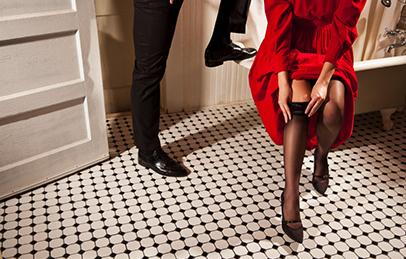Early humans made tiles out of mud and clay, and over time they used stone, like marble and granite, to create long-lasting floors. Glorious examples of tile flooring still appear intact in museums and public buildings all over the world.
This kind of opulence was rarely found in homes, and even now, stone floors are a symbol of status and wealth.

When you’re shopping for tile flooring, you need to keep in mind what it’s going to be used for. There are several ratings you’ll see:
Abrasion Resistance: a measure of the tile’s surface hardness. The higher the number, the harder the tile’s surface is.
Frost Resistance: This is based on how porous tiles are and how much water they absorb. Frost resistance is also dependent on the grout, subfloor, sealers, and other coatings together as a whole. Frost resistance matters if you’re going to be using tile outdoors.
PEI Rating: The hardness of porcelain tile is rated by the Porcelain Enamel Institute (PEI) abrasion test.The scale ranges from 0-5 with 0 being tiles used for walls and tiles rated a 5 being best for high traffic areas like building entrances, swimming pools, and shopping malls.
Slip Resistance: (COF-Coefficient of Friction) Pay attention to this number if you are using tile for a wet area or where there are going to be people who have difficulty walking. There a few different scales used: Learn more about them here.
Variation: This rating will give you an idea of how much variation in colour and shade there is between tiles. V1 indicates very little variation from tile to tile while V4 tiles will have random variations of shade and even texture within the same pack.
Water Absorption: This rating is a measurement of how much water the tile is likely to absorb. If tiles absorb too much water, they may crack. There are only four ratings. From least dense to most, they are Non-vitreous, semi-vitreous, vitreous, and impervious.
Because of the improvements made to the manufacturing process, porcelain (not stone) tiles are the most dense and water resistant. Since diamond flooring hasn’t been invented yet, glazed porcelain tile is the next best thing.
If you’re drawn to the look of stone like marble, granite, slate, limestone, or travertine, HD printing technology on porcelain tiles can give you the same effect without the added care and precaution needed for those “softer” materials.